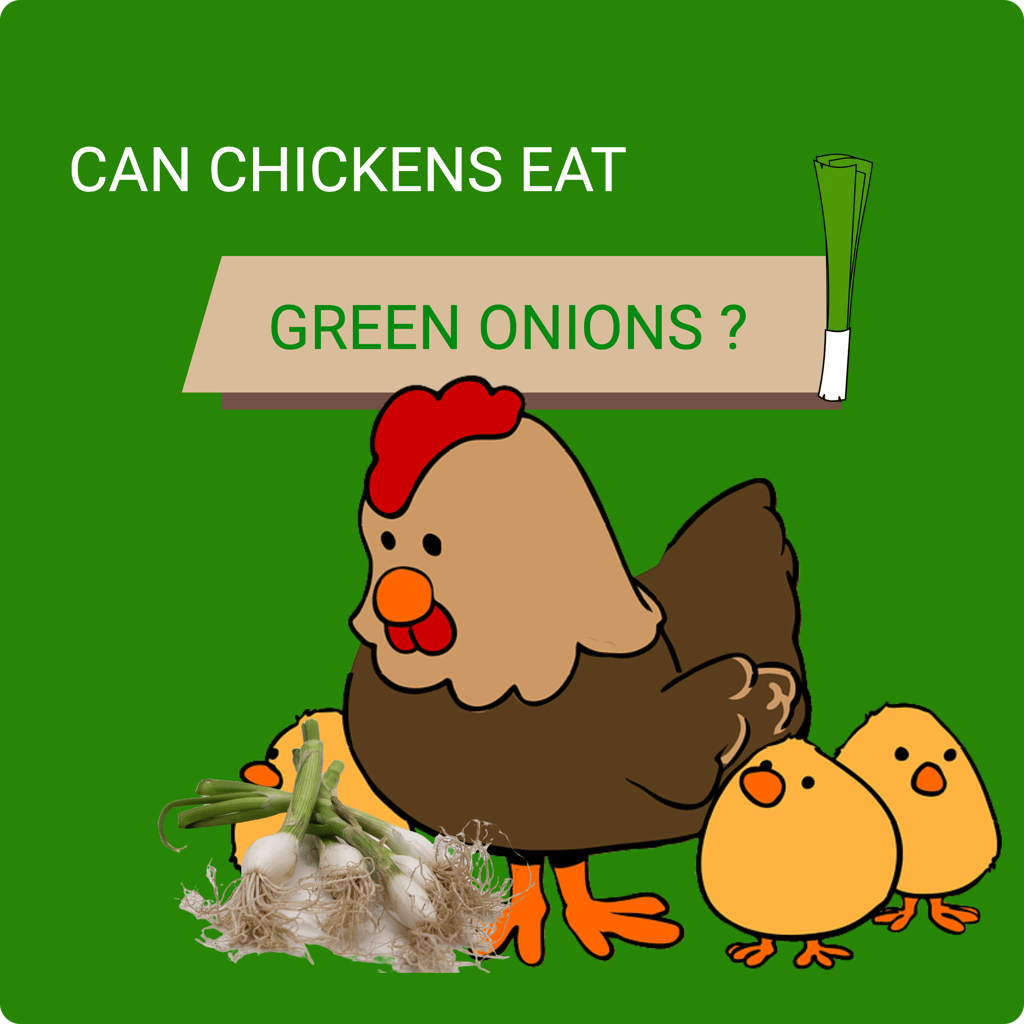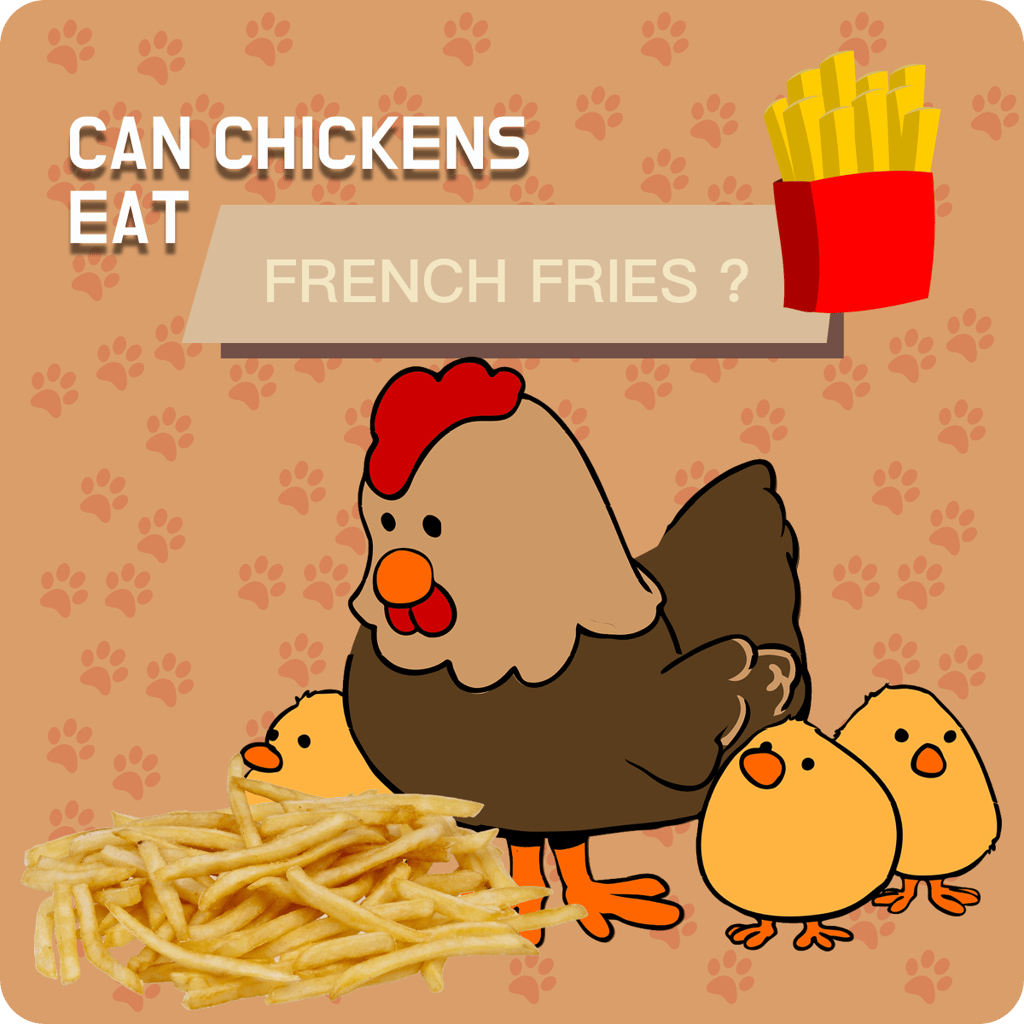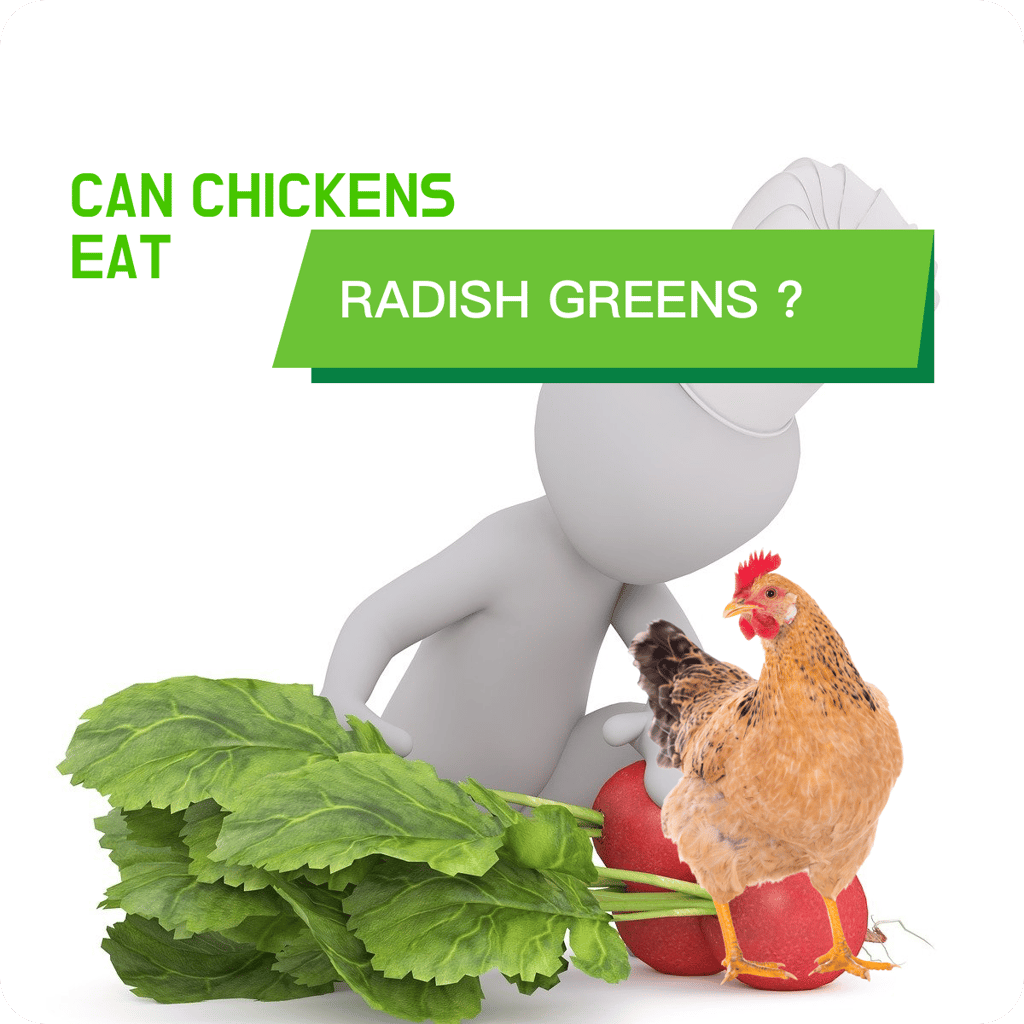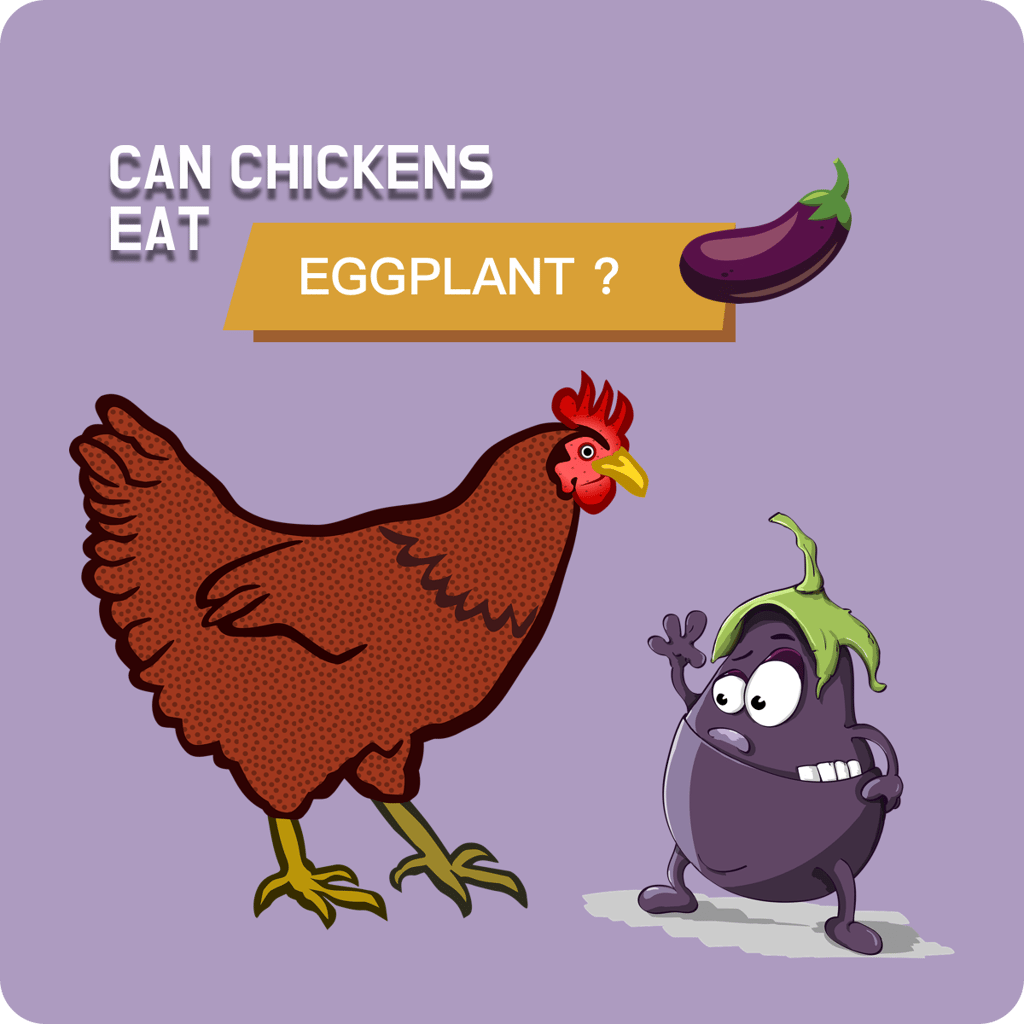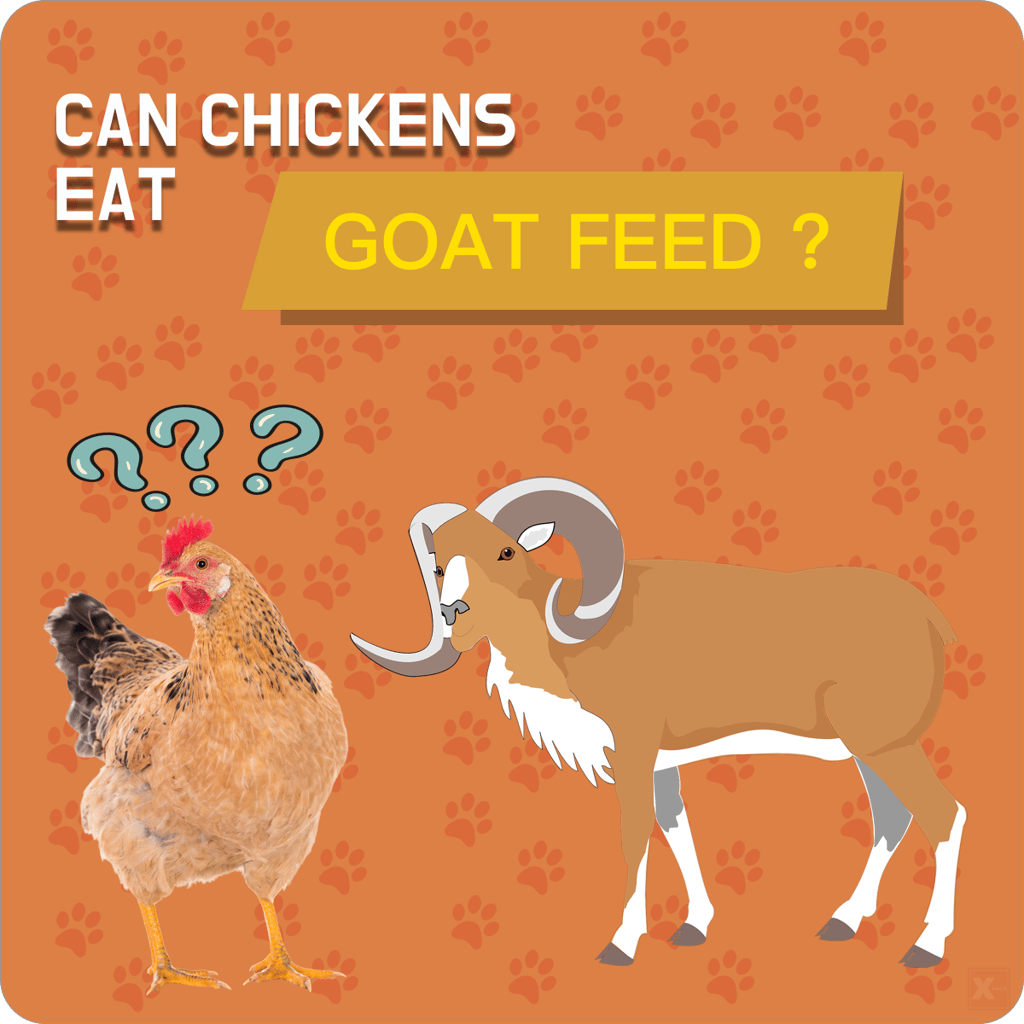Yes, chickens can eat green onions, but with certain precautions. Green onions can provide some nutritional benefits to chickens, but they should be given in moderation and in the proper form. This article will explore the nutritional value of green onions, potential risks associated with feeding them to chickens, and provide guidelines on how to safely incorporate them into their diet. Additionally, we will discuss alternative treats that are safe for chickens to enjoy.

Introduction to Chickens and Their Diet
Chickens are popular domesticated birds that are kept mainly for their eggs and meat. They are known for their omnivorous diet, which means they can eat a variety of foods, including grains, fruits, vegetables, insects, and even small animals. However, it's crucial to understand that not all human foods are safe or suitable for chickens.
When it comes to their dietary needs, chickens require a balanced diet that provides the necessary nutrients for their growth, health, and egg production. Their diet typically consists of a combination of commercial feed, kitchen scraps, and foraging in the backyard where they can find insects and plant matter to supplement their diet.
| Safe Chicken Foods | Avoid Feeding |
|---|---|
| Grains (wheat, corn, barley) | Processed foods |
| Fruits (apples, berries, oranges) | Salty or sugary snacks |
| Vegetables (lettuce, carrots, cucumbers) | Chocolate or caffeine |
As an attentive chicken owner, it's essential to research and ensure that the foods you offer to your chickens are safe and suitable for their consumption. This brings us to the question of whether chickens can eat green onions.
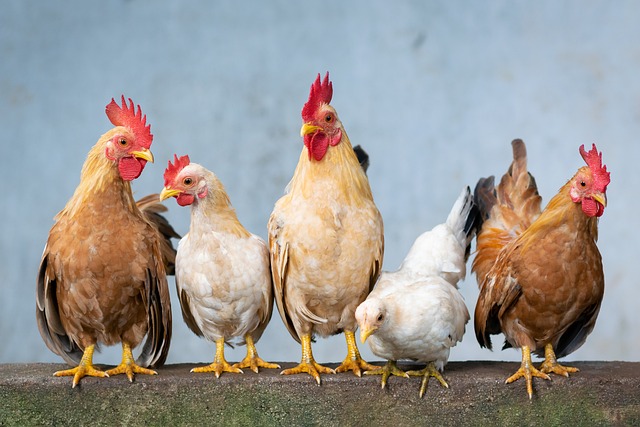
Understanding Green Onions
Green onions, also known as scallions or spring onions, are a popular vegetable used in various culinary dishes and cuisines. They are characterized by long, slender green leaves and white bulbs. Many people enjoy the mild and slightly tangy flavor of green onions in salads, stir-fries, soups, and as a garnish. However, when it comes to feeding green onions to chickens, some precautions need to be considered.
| Green Onions | Can Chickens Eat? |
|---|---|
| Green Onion Leaves | Yes, but in moderation |
| Green Onion Bulbs | Avoid feeding |
Chickens can safely consume green onion leaves, as they are low in calories, high in fiber, and rich in vitamins such as vitamin K and vitamin C. These nutrients can contribute to the overall health and well-being of chickens. However, the bulbs, which are the white part of the green onions, should be avoided as they contain a higher concentration of compounds that can be harmful to chickens in larger quantities.
While green onions can be a nutritious addition to a chicken's diet, it's important to remember that moderation is key. Feeding excessive amounts of green onions or other treats can lead to digestive issues and may disrupt the balance of their regular feed. It's always best to provide a balanced diet primarily consisting of specially formulated poultry feed and fresh water.
If you're unsure about introducing green onions to your chickens' diet or have any concerns, consult with a veterinarian or an experienced poultry keeper for personalized advice.
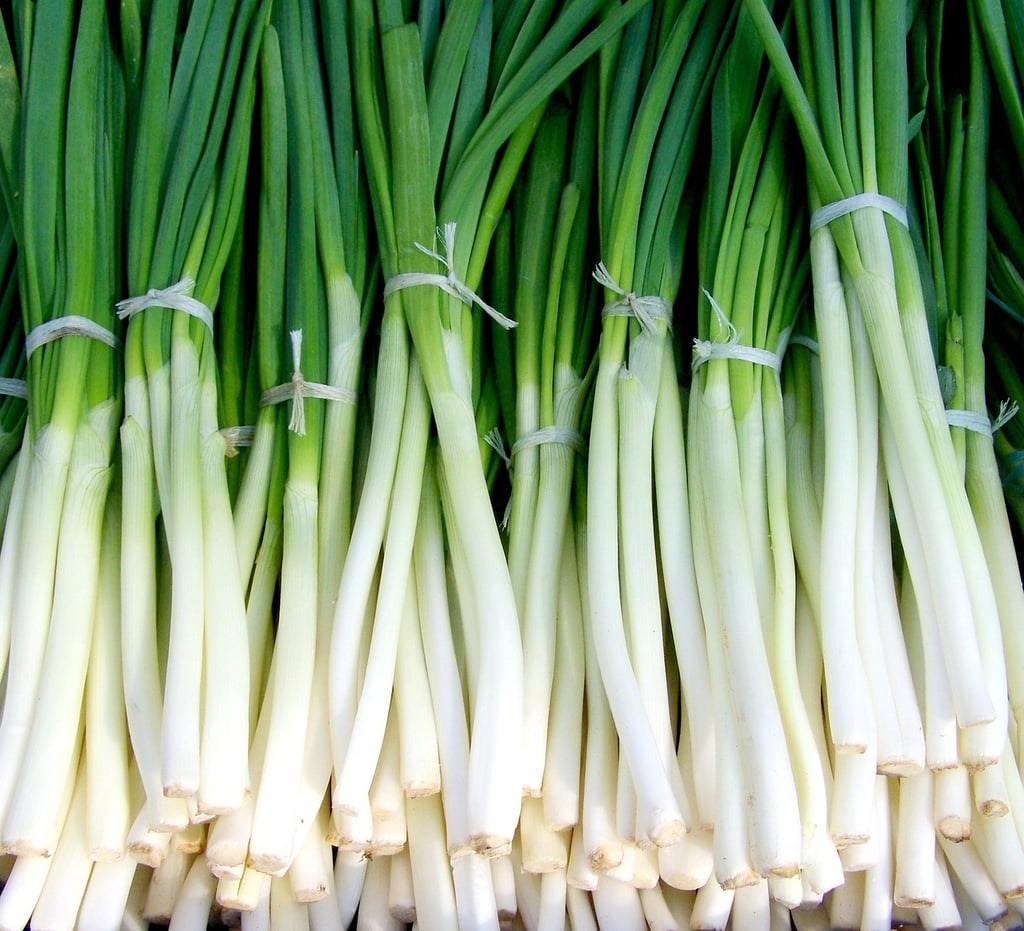
The Nutritional Value of Green Onions
Green onions, also known as scallions or spring onions, are a popular ingredient in various culinary preparations. These slender, green-topped onions add a distinct flavor to dishes and are often used as a garnish. When it comes to the nutritional aspect, green onions are not only low in calories but also rich in essential vitamins and minerals, making them a nutritious addition to human meals.
| Nutrient | Amount per 100g |
|---|---|
| Calories | 32 kcal |
| Carbohydrates | 7.3g |
| Protein | 1.8g |
| Fiber | 2.6g |
| Vitamin C | 19.6mg |
| Vitamin K | 207µg |
| Potassium | 276mg |
As seen in the table above, green onions are a rich source of vitamin C, providing almost 33% of the recommended daily intake per 100 grams. They are also high in vitamin K, which plays a crucial role in blood clotting and bone health. Additionally, green onions contain dietary fiber, potassium, and other beneficial nutrients.
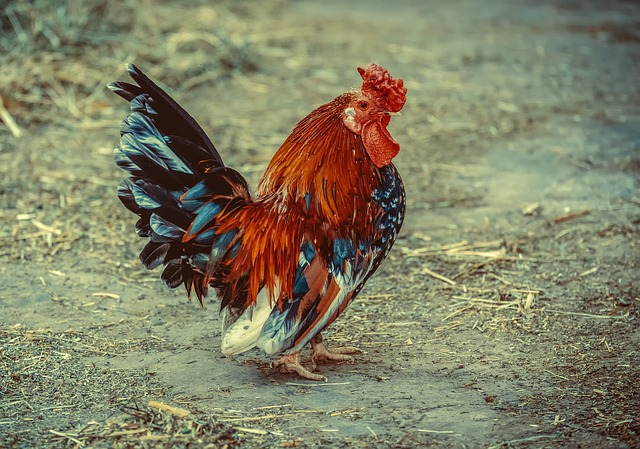
Potential Risks of Feeding Green Onions to Chickens
Alright! Here's an expanded description for the outline title "Potential Risks of Feeding Green Onions to Chickens":
While green onions may seem like a harmless addition to your chickens' diet, there are certain risks associated with feeding them to your feathered friends. It's important to be aware of these risks to ensure the health and well-being of your chickens. Here are some potential risks to consider:
| Risk | Description |
|---|---|
| 1. Toxic Compounds | Green onions contain compounds like thiosulfates and organosulfides, which can be harmful to chickens if consumed in large quantities. These compounds can cause damage to the red blood cells, leading to a condition called hemolytic anemia. |
| 2. Digestive Issues | Chickens have delicate digestive systems, and feeding them excessive amounts of green onions can result in gastrointestinal upset. This can manifest as diarrhea, bloating, or even more serious digestive disturbances. |
| 3. Allergic Reactions | Some chickens may have individual sensitivities or allergies to green onions. Feeding them this particular food can trigger allergic reactions, such as swelling, itching, or respiratory distress. |
Considering these potential risks, it's advisable to exercise caution when it comes to feeding green onions to your chickens. While small quantities as occasional treats may not cause harm, it's best to consult with a veterinarian or poultry expert to determine the appropriate diet for your flock.
Remember, a well-balanced diet primarily consisting of chicken feed specially formulated for their nutritional needs is crucial for maintaining their overall health and productivity.
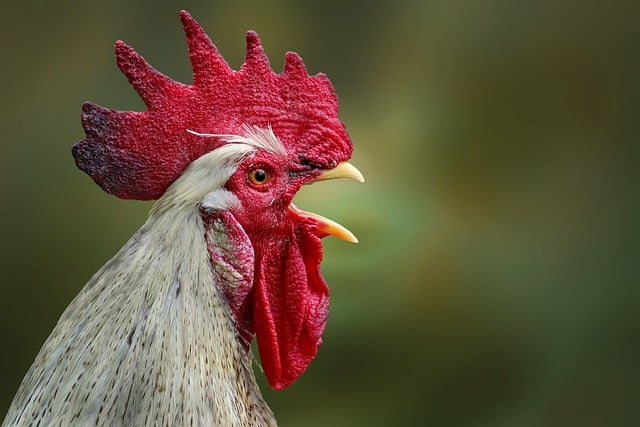
Guidelines for Feeding Green Onions to Chickens
Chickens are domesticated birds that are commonly kept for their eggs, meat, and as beloved backyard pets. As omnivores, they have a diverse diet that includes grains, fruits, vegetables, insects, and small animals. However, not all foods are suitable for chickens, and it's important for poultry owners to be aware of what is safe and appropriate to feed their feathered friends.
Green onions, also known as scallions or spring onions, are a type of onion that is harvested before full maturity. They have long green stalks and small white bulbs, and they are often used as a flavorful addition to various dishes. Green onions have a mild onion flavor and are commonly used in salads, soups, stir-fries, and garnishes.
Green onions are known for their nutritional benefits. They are low in calories and fat while being high in essential nutrients such as vitamins A, C, and K. They also provide dietary fiber, folate, and various minerals like potassium and calcium. Including green onions in a human diet can offer numerous health advantages.
While green onions are generally safe for human consumption, they can pose risks to chickens if fed in excessive amounts or in certain conditions. Onions contain compounds that may be harmful to chickens in high concentrations, particularly a substance called thiosulphate. Consuming too much thiosulphate can lead to a condition known as hemolytic anemia, which can damage a chicken's red blood cells and negatively affect their overall health.
When it comes to feeding green onions to chickens, it's crucial to practice moderation and take precautions to ensure their well-being. Here are some guidelines to follow:
- Offer green onions as an occasional treat rather than a staple food in a chicken's diet.
- Chop green onions into small pieces to make it easier for chickens to consume.
- Introduce green onions gradually, starting with small quantities to observe any adverse reactions.
- Monitor chickens closely after introducing green onions and look for signs of digestive upsets or other negative symptoms.
- If chickens show any negative reactions, remove green onions from their diet immediately.
- Provide a balanced diet consisting of layer feed, grains, vegetables, and other safe treats to ensure chickens receive essential nutrients.
While green onions can be given to chickens in moderation, there are several other nutritious and safe treats you can offer to keep your flock healthy and happy. Some alternatives include:
- Fresh fruits like berries, melons, and apples (avoid giving them the seeds)
- Leafy greens such as lettuce, spinach, and kale
- Cooked eggs (a good source of protein)
- Mealworms or other insect treats
- Corn or peas (cooked or raw)
Remember, providing a varied and balanced diet is essential for the overall well-being of your chickens. Always consult with a veterinarian or poultry expert for specific dietary recommendations for your bird's breed and age.
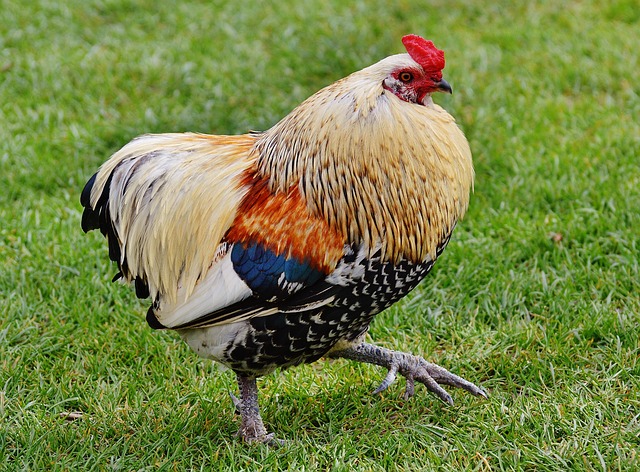
Alternative Safe Treats for Chickens
Chickens are popular domesticated birds known for their egg-laying and meat-producing attributes. Proper nutrition is crucial for the overall health and well-being of chickens. While they primarily thrive on a diet of grains, seeds, insects, and vegetables, it's important to understand which foods are safe and suitable for them.
Green onions, also known as scallions or spring onions, are members of the allium family. They have long green stalks and small white bulbs. Green onions are commonly used in various culinary dishes for their mild and refreshing onion flavor.
Green onions are packed with essential nutrients that can benefit chickens. They contain vitamins A, C, and K, as well as minerals like folate and potassium. The green parts of green onions are particularly rich in antioxidants and fiber, which support digestion and overall health.
Although green onions offer nutritional value, feeding them to chickens requires caution. Green onions contain certain compounds that can be harmful to chickens in higher quantities. They contain substances like thiosulphate and n-propyl disulfide, which can potentially lead to a condition called hemolytic anemia in chickens.
To minimize the risks associated with feeding green onions to chickens, it's important to follow these guidelines:
- Limit the amount: Green onions should be given to chickens as a treat and not as a substantial part of their diet. Offer them in small quantities, especially when introducing them for the first time.
- Chop them finely: Chop the green onions into smaller pieces to make them easier for chickens to eat and digest.
- Monitor for adverse reactions: Observe your chickens after introducing green onions to ensure they show no signs of illness or discomfort.
- Rotate treats: It's important to provide a diverse diet to chickens. Rotate the treats and include other safe options to ensure balanced nutrition.
While it's important to exercise caution when feeding green onions to chickens, there are several alternative safe treats you can offer them. Some popular options include:
| Treat | Description |
|---|---|
| Fruits | Chickens enjoy a variety of fruits such as watermelon, strawberries, and apples. Ensure to remove seeds and pits before feeding. |
| Vegetables | Carrots, spinach, cabbage, and pumpkin are great vegetable choices loaded with essential nutrients for chickens. |
| Grains | Oats, barley, and corn can be given as treats but should be offered in moderation due to their high carbohydrate content. |
| Mealworms | Mealworms are an excellent source of protein for chickens and can be given as an occasional treat. |
Remember, maintaining a balanced diet and providing treats in moderation is key to keeping your chickens healthy and happy.
Faqs
-
Can chickens eat the green part of green onions?
Yes, chickens can eat the green part of green onions. However, moderation is key as the green part can have a stronger flavor and cause digestive issues if consumed in large quantities.
-
Are there any alternative vegetables for chickens apart from green onions?
Absolutely! Chickens can enjoy a variety of vegetables as part of their diet. Some safe options include lettuce, spinach, kale, carrots, cucumbers, and bell peppers. Ensure the vegetables are fresh, clean, and cut into appropriate sizes for their consumption.
-
What negative effects can occur if chickens consume too many green onions?
If chickens consume excessive amounts of green onions, they may experience digestive upset such as diarrhea. Additionally, green onions contain a compound called thiosulphate, which can be toxic to chickens in large quantities. It is important to offer green onions as a treat in moderate amounts and monitor their response.

